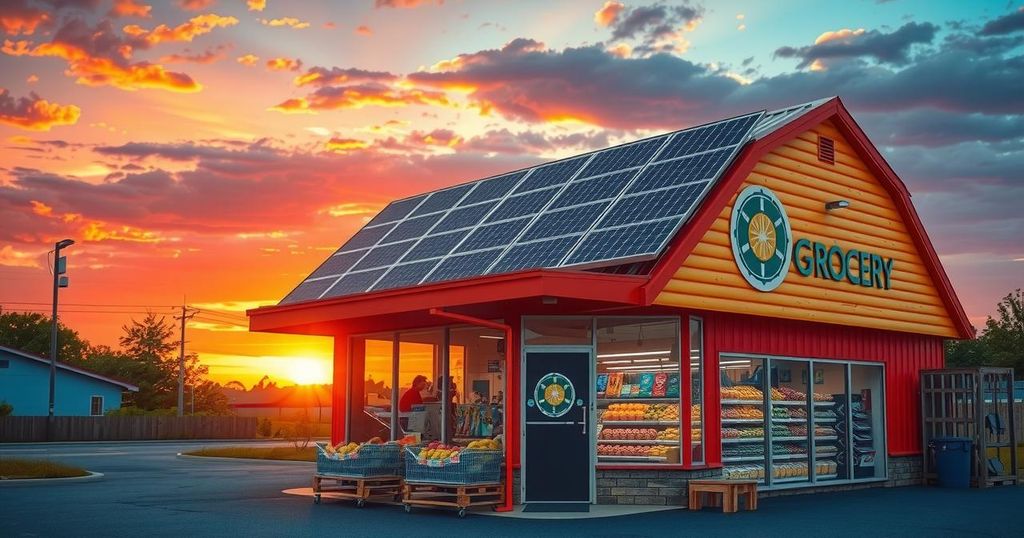Nigeria’s government proposes a ban on solar panel imports to enhance local production, but experts warn this may lead to increased costs, impacting affordability for low-income families and rural areas relying heavily on solar energy. The ban is seen as premature amidst concerns about local manufacturing capabilities and price surges.
In Nigeria, the government’s proposal to ban solar panel imports has raised alarm among business owners reliant on solar energy, especially amidst the country’s energy crisis. Chidi Okonkwo, a grocery shop owner, compares the ban to “outlawing umbrellas during the heaviest rains” as solar energy plays a crucial role in their daily operations by powering businesses, homes, and essential clinics.
The incumbent administration is invoking a Presidential Executive Order No. 5 aimed at enhancing local content within the science and technology sectors. Uche Nnaji, the minister of science and technology, claims that Nigeria’s abundant lithium resources can support local solar energy production, which will propel the domestic renewable energy sector forward.
However, energy experts are concerned that this ban could mirror past governmental policies that had unintended negative consequences. For instance, the 2019 closure of Nigeria’s land borders to curb smuggling led to increased food prices, which have persisted even after reopening. Aisha Mohammed of the Center for Development Studies warns that a solar panel import ban may exacerbate affordability issues for Nigerians already facing high solar panel costs.
Jide Pratts, the country manager of Trade Grid, argues that the ban is premature. He advocates for a thorough evaluation of Nigeria’s local production capacity before imposing import restrictions. Although lithium exists in Nigeria, he noted a lack of commercial extraction and standardization.
Furthermore, experts emphasize that Nigeria’s local solar manufacturing is still developing, with existing assembly plants unable to meet nationwide demand. Chioma Nwachukwu, a project manager for a solar nonprofit, highlights that locally manufactured solar panels often cost more than imports, making them unaffordable for many households.
BusinessDay research indicates that solar system prices in Nigeria range from N400,000 for basic systems to N20 million for advanced setups. More cost-effective solutions like entry-level 5kVA systems and high-end hybrid units show a diverse market, yet potential import bans threaten to inflate prices further.
Experts predict that the ban could lead to a price surge of 40-60%, forcing low-income families back to less sustainable energy sources like generators. This move could worsen the already critical pollution and energy poverty issues.
Rural communities, often solely dependent on solar energy, may be affected the most by rising costs. Adebola Ogunleye, a local frozen food vendor, illustrates the personal impact of this situation, stating, “If solar becomes too expensive, I’ll have to raise my prices,” jeopardizing both his business and that of his customers.
The potential ban on solar panel imports in Nigeria raises significant concerns, particularly regarding affordability and access to essential energy sources. Experts fear it will lead to soaring prices, especially affecting low-income families and rural areas that rely on solar energy. While the government aims to bolster local production, stakeholders emphasize the need for careful planning and investment in domestic manufacturing capacity to avoid exacerbating existing energy challenges.
Original Source: businessday.ng






